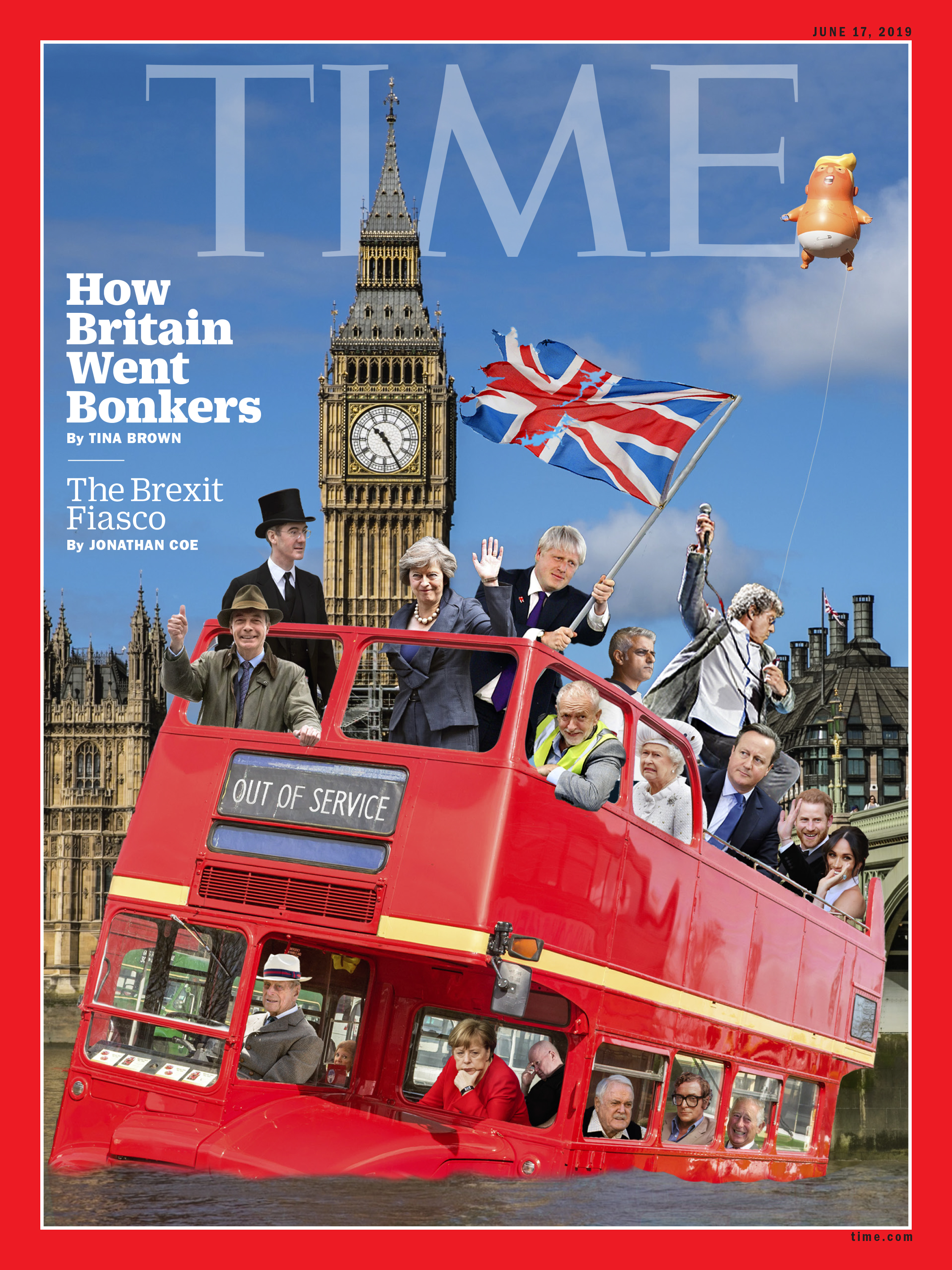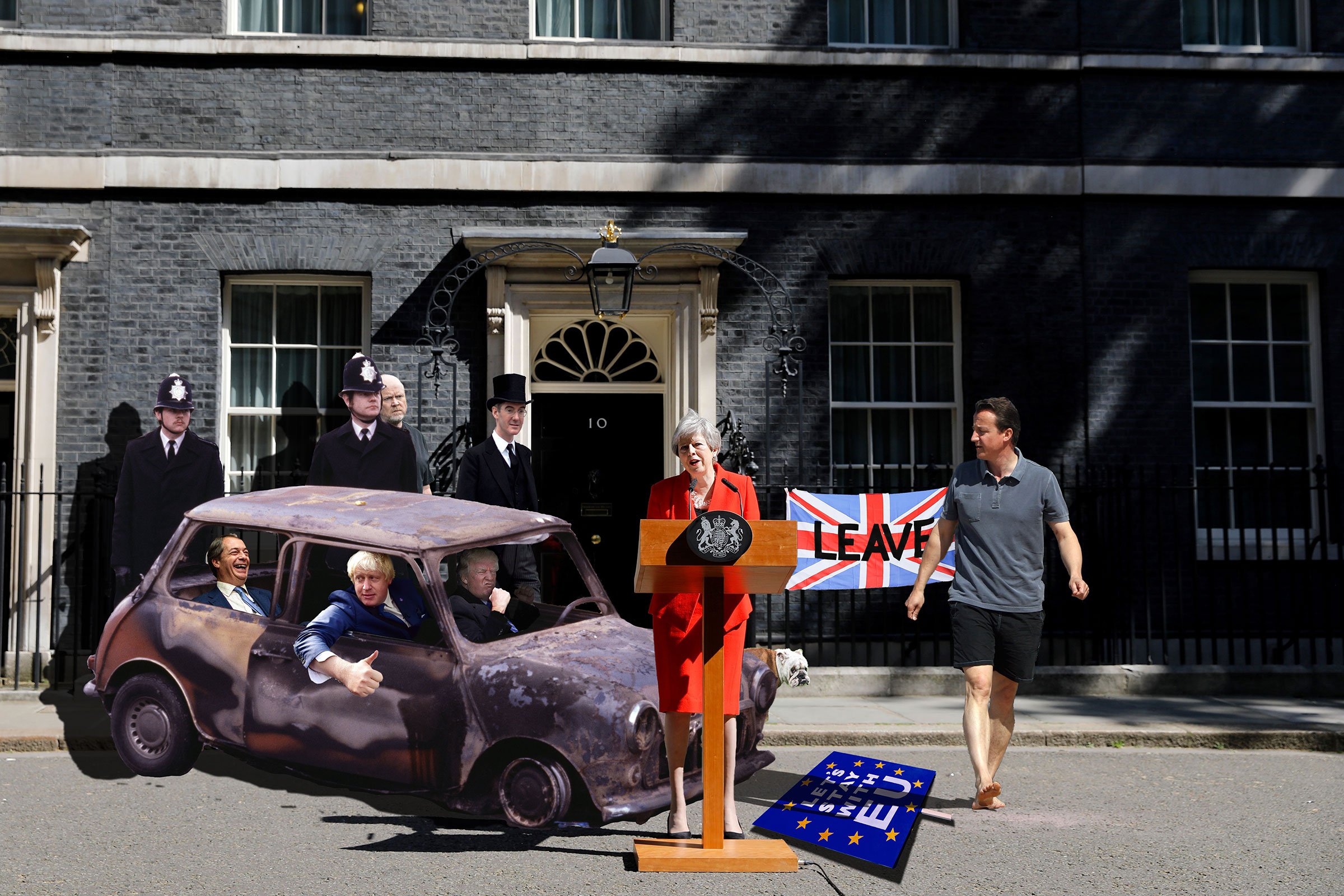On a Friday evening in July 2012, 80,000 people gathered at the Olympic Stadium in East London to watch the opening ceremony of the 30th Olympiad. Some 27 million British people watched it on their televisions, and many more around the globe. Expectations were sky-high and tinged with skepticism. Many of us sat down to watch the ceremony in that typically British frame of mind–ironic, self-deprecating, pragmatic–which did not predispose us to be impressed.
But impressed we were. It’s very hard to articulate a resonant, complex vision of your own national identity without resorting to cliché, but the creators succeeded that night. They did it by using humor–by deploying witty and creative use of British icons such as James Bond and Mr. Bean, by digging deep into our great cultural and political heritage. The fact that audiences in other countries were bemused, apparently, by some of the more specific cultural references only confirmed the ceremony’s determination not to project the well-worn, flag-waving, red-London-bus version of Britishness that the rest of the world was used to seeing. As a result, millions of Britons went to bed that night fired up and inspired, proud to be part of such a confident, inventive and quirky country.

Fast-forward to just short of four years later: Thursday, June 16, 2016. It’s one week before voting in the Brexit referendum called by David Cameron primarily to heal long-term splits within his Conservative Party. A national debate supposedly about membership in an economic and political bloc had become, instead, about many things–one of them immigration–and discussion had become bitter and polarized. The arch-Brexiteer Nigel Farage set a low point that morning, grinning and joking with reporters as he posed before a gigantic poster showing a column of dark-skinned migrants lining up to cross an E.U. border. The tagline: Breaking Point: the E.U. has failed us all. Later that same day, a far-right extremist murdered a young British lawmaker, Jo Cox, in the street. Few British people went to bed that night feeling anything but shock and disgust.
Brexit is a lesson in how quickly a country can degenerate into division and factionalism, and how tenuous are the bonds that hold us together around the vexed issue of national identity. Of those two competing representations, which one shows the real United Kingdom–the intelligent, forward-looking, inclusive one articulated in that Olympic ceremony, or the insular, ungenerous one expressed on that poster? Three years after the vote, the answer is still far from clear. Britain today is just as divided as it was in June 2016, if not more so.

One thing is certain, at least: Brexit is not primarily about Britain’s membership in the European Union, and never was. Polls conducted before 2016 show the British public was far more concerned with pressing issues like housing, education, health and welfare. Instead, the narrow majority for Leave was patched together from a grumbling coalition of discontents that had been bubbling away beneath the surface of British life for at least 10 years. People were suffering the effects of a punishing government austerity program, ostensibly designed to deal with the shock of the 2008 financial crisis. Anxieties about immigration were being remorselessly stoked by populist newspapers. And there was a growing mistrust of the political class in general, after dubious expense claims by lawmakers were the subject of a lengthy newspaper exposé in 2009.
The majority for Brexit was wafer-thin–just 2% of the population–and casual observers may wonder how Britain should have allowed such a radical change in its constitutional and geopolitical arrangements based on such a shaky mandate. But we Brits live in a winner-takes-all culture: our first-past-the-post electoral system and addiction to reality-TV contests are different symptoms of this. We do not have the political culture of coalitions and compromises upon which our European neighbors’ governing systems depend. Our media also thrives on drama and sensationalism, and in the days after the referendum, it celebrated the result with all the drunken fervor of soccer supporters after a freak goal three minutes into injury time. The days and weeks after the referendum vote could have provided a space for reconciliation and calm reflection. Instead they became an occasion for frenzied triumphalism. The rift between Leavers and Remainers became even more bitter and entrenched, setting the tone for what was to come.
The premiership of Theresa May set these divisions in stone. Chosen by her party to replace Cameron, she did not attempt to unite the country around this fractious issue but instead laid down red lines and talked in populist slogans like “Brexit means Brexit.” As her government twisted itself in knots negotiating a withdrawal deal with the E.U. leadership, her authority slowly slipped away–especially after the disastrous 2017 election in which she lost her parliamentary majority. By the time negotiators emerged with a compromise deal, lawmakers had long refused to engage with the reality of the sacrifices Brexit would require.
At this point, a crucial fact about Leave’s victory in June 2016 became impossible to ignore: namely, that it had not just been narrow, it had been vague. During the referendum, campaigners had been skillful at stirring up resentments but had not set out in sufficient detail the nuts and bolts of leaving the E.U. or what Britain’s future relationship with Europe should be. When Brexit was an ideal, nebulous, undefined notion, just about 52% of the electorate could coalesce around it. When it had to be translated into political reality, nobody could agree what “it” was meant to look like.
And so, after Parliament repeatedly rejected her deal, May announced her resignation and became the latest Conservative Prime Minister–after Cameron, John Major and (arguably) Margaret Thatcher–to have their authority destroyed by the party’s poisoned relationship with the E.U. Now the country must temporarily put aside the business of Brexit as the Conservatives spend time on a wasteful and divisive campaign to find a new leader and Prime Minister. And the leading contender would appear to be the artfully shambolic former London mayor Boris Johnson.
To understand why this should be so, you must appreciate that there is nothing the Brits love more than an eccentric or, better still, a “character.” We pride ourselves on our sense of humor, but have rarely stopped to think how often we use it to avoid thinking seriously about things. It was Johnson, after all, who as a Brussels newspaper correspondent in the early 1990s began to send back dispatches from the E.U. making out that the whole thing was a comical racket run by crazy bureaucrats who filled their time (and wallets) drafting absurd regulations on such ephemera as the shape of bananas on sale in our supermarkets. The myth took hold and, in 2016, overshadowed any serious discussion of the E.U.’s role as a long-term peacekeeper and facilitator of supranational cooperation. That the myth’s wisecracking originator could soon be Prime Minister shows how fundamentally unserious British politics has become since then.
Another figure from outside the mainstream of British politics has stepped into the void created by May’s departure–Farage, the former U.K. Independence Party leader hailed as “Mr. Brexit” by President Donald Trump. This shrewd political operator doesn’t bother much with the minutiae of policy detail but aims to reach his followers at a deeper, more powerful gut level through beery, blokeish plain speaking. Farage staged a series of Trump-style rallies up and down the country this spring stoking the resentment of voters bored and frustrated by the intractability of the Brexit process–and won his new Brexit Party first place in the European election in the process. The narrative of betrayal Farage likes to cloak in his saloon-bar rhetoric is dangerous in Britain’s current febrile atmosphere; the xenophobic energies unleashed by the 2016 campaign, according to the government, led to a 41% spike in hate-crime offenses in the month following the referendum. This lingering trend has contributed to the rise of far-right figureheads like Stephen Yaxley-Lennon, an anti-Islam agitator who goes by the name Tommy Robinson and whose public appearances have stirred up unrest. Feelings also run high on the Remain side, although March’s People’s Vote rally, a hundreds of thousands–strong pro-E.U. protest in central London, passed without violence, and anti-Farage protesters have adopted the tactic of dousing him with milkshakes (the especially thick version from U.S. burger chain Five Guys being the variety of choice).
These incidents testify to the bitterness of Britain’s current political deadlock. Still stunned by the referendum result, and cowed by the way it was talked up in the media as an overwhelming mandate, our political class remains paralyzed by its own commitment to delivering the undeliverable. And so here we are. The U.K. is expected to leave the E.U. on Oct. 31. Nobody is any clearer as to what form this exit will take, or who will be the Prime Minister that oversees it. Meanwhile, all the resentments that lay behind the vote continue to bubble away unaddressed.
Through creativity, humor and a certain sleight of hand, the architects of the Olympic opening ceremony presented, that night in 2012, a vision of Britishness around which most of the country felt they could unite. But it was a fleeting moment, and an illusory one. What the referendum revealed was probably much more truthful: A country at war with itself. A country divided along lines of age, education, wealth and opportunity; a country seen quite differently by the old and the young; a prickly union in which provincial England had a very different sense of identity from metropolitan England, and felt little of the sense of “Europeanness” that Scotland, for instance, expressed strongly through its votes to stay in the E.U. Asked, on June 23, 2016, what kind of collective identity it wanted to assert, the U.K. replied with one loud, clear, unanimous voice: “We don’t know.”
In a strange way, David Cameron did the U.K. a backhanded favor in calling his referendum. We may have no answers to the core, intractable questions that the referendum raised about our culture, national identity and sense of belonging. But at least, now, we have begun to talk about them.
Coe is a London-based writer whose new novel, Middle England, will be published in the U.S. on Aug. 20
More Must-Reads from TIME
- Donald Trump Is TIME's 2024 Person of the Year
- Why We Chose Trump as Person of the Year
- Is Intermittent Fasting Good or Bad for You?
- The 100 Must-Read Books of 2024
- The 20 Best Christmas TV Episodes
- Column: If Optimism Feels Ridiculous Now, Try Hope
- The Future of Climate Action Is Trade Policy
- Merle Bombardieri Is Helping People Make the Baby Decision
Contact us at letters@time.com